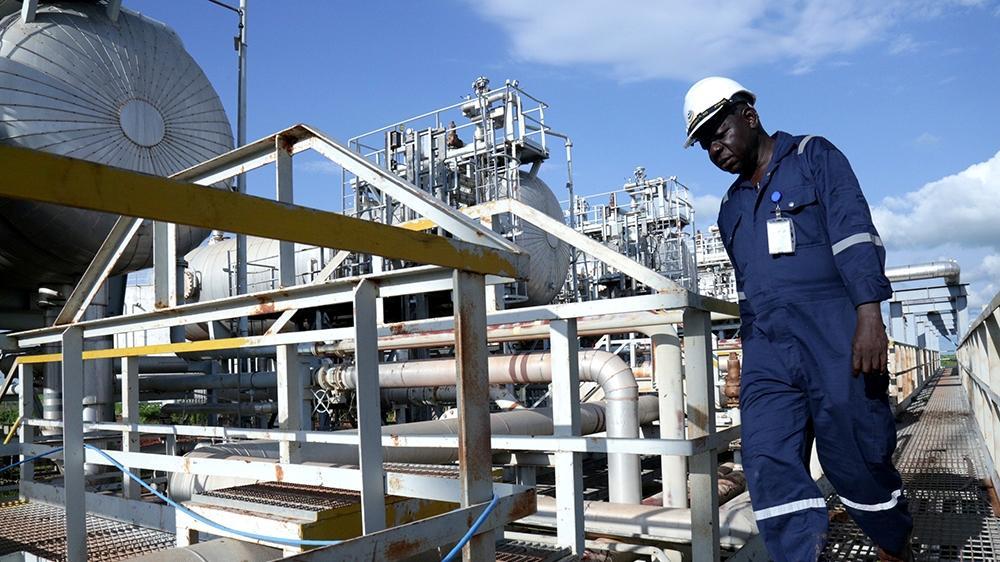Majok Deng
Africa-Press – South-Sudan. The government’s ownership of oil resources means that it can finance a large fraction of its expenditures with incomes generated from the exportation of oil to international markets. The government has projected in the fiscal year 2023–24 to collect more than 80 percent of revenues from oil revenue, and the remaining revenue would come from non-oil revenues and grants. The budget financed via grants and oil revenue is tantamount to debt monetization, which may depend on the central bank’s de-jure exchange rate policy. This has made the government’s spending of oil revenue on budgetary allocations a curse from a macroeconomic perspective.
The de-jure exchange rate can be deduced from the fact that the government is expected to operationalize the Treasury Single Account (TSA), in which a central bank would convert the government’s earnings in the form of dollars into the South Sudanese Pound (SSP) and deposit the SSP equivalent into the TSA. In that environment, the central bank would have to print money to pay for the purchase of government oil receipts, leading to an increase in its international reserve on the one hand and a surge in its monetary base on the other. For example, the monetary base has increased dramatically since 2011, jumping from SSP 3.9 billion in 2011 to SSP 5 trillion as of November 2022, according to the standardised report of the central bank (2022).
As the government planned to raise SSP 1.5 trillion from oil exports, I predict that the monetary base may hit the SSP 6 trillion mark by the end of fiscal year 2023–24. This is because the central bank’s monetary arsenal, such as the term deposit facility, could only affect a small fraction of base money, and this poses a severe risk to the conduct of the exchange rate as the SSP could depreciate further and spillover to high inflation.
In a nutshell, understanding the effect of oil dominance is crucial considering the fact that the Bank of South Sudan (BOSS) has adopted a reserve money targeting framework. So factors that influence the levels of M1 and M2 should be of important attention to policymakers, researchers, and stakeholders.
As the Central Bank tries to sterilise an increase in the monetary base via intervention in the foreign exchange market, monetary aggregates will decline. However, the international reserve would also go down. This would distort the conduct of monetary policy and pose a tough balancing act for policymakers in the finance ministry and the Bank of South Sudan. As a result, oil dominance is more plausible in developing countries due to the fact that they cannot issue long-term bonds with different maturities due to a lack of credibility and the prevailing high inflation rate.
The introduction of the term deposit facility (TDF) into a central bank’s toolkit has helped to sterilise the surge in monetary base. However, it could not absorb enough liquidity since investors do not want to commit to longer-term maturities due to the effect of inflation. The TDF used to absorb roughly SSP10 billion, which is less than 1 percent of the monetary base.
The central bank did respond swiftly by raising the central bank rate to 15 percent in its last monetary policy committee meeting so that investors in TDF could earn a real interest rate. For example, according to the national bureau of statistics, the inflation rate in South Sudan was reported at 13.8 percent in the month of May 2023. This means that those who can invest in TDF could still earn a real interest rate of 1.2 percent. Therefore, instead of keeping money at home or in other risky places, I encourage local investors to put their money into TDF. Indeed, the benefits of investing in the TDF far outweigh the benefits of keeping money under the pillow.
The oil dominance in South Sudan has destabilised the main macroeconomic indicators and distorted control of monetary aggregates. In contrast to the tax-finance budget, when taxpayers pay taxes into government accounts at a central bank, it often leads to a contraction of the money supply. But as the government spends tax receipts on budgetary allocation over time, the same amount of money goes back into circulation, leaving the monetary base unchanged and the stability of other macroeconomic aggregates: inflation, exchange rate, and unemployment.
Certainly, oil dominance is more plausible in South Sudan due to the inefficiency of tax collection and political instability. The so-called non-oil revenues make up a small fraction of the central government budget. This requires the government to improve its transparency and accountability in the collection of revenue and reduce the effect of oil dominance.
In order for the government to achieve its macroeconomic goals of price stability, full employment, sustainable economic growth, and external balance, the Treasury Bill should be rolled out in the most efficient and transparent manner in conformity with international best practise. The Treasury bill will be complementary to TDF as liquidity management tools. In fact, fiscal and monetary policies are the main tools for achieving macroeconomic targets. This, therefore, suggests the significance of stabilisation policy, which may not be overemphasised in South Sudan’s economic growth model.
At the level of our development, there is no doubt that inflation is influenced by monetary phenomena in both the short and long run, and targeting the growth of the money supply is an appropriate method for targeting inflation. It is on this basis that the BOSS adopted a monetary targeting framework to achieve its objective of price stability with the use of broad money (M2) and base money as monetary policy targets. Based on the data I have looked at, M1 and M2 have continued to move in tandem, and this gives an important signal for monetary policy conduct.
For More News And Analysis About South-Sudan Follow Africa-Press






